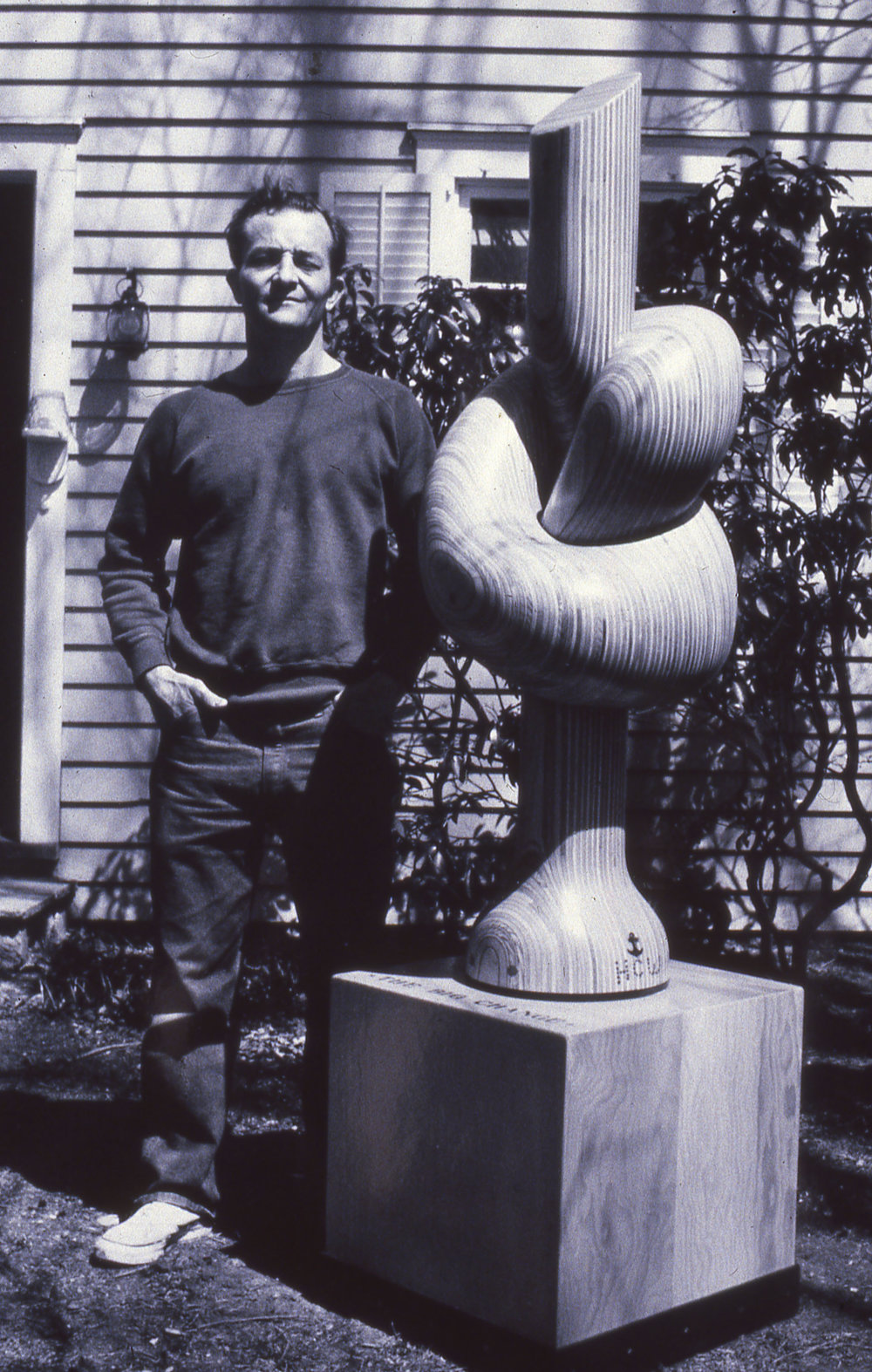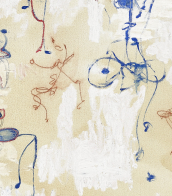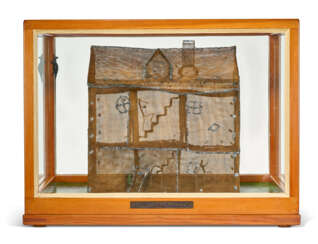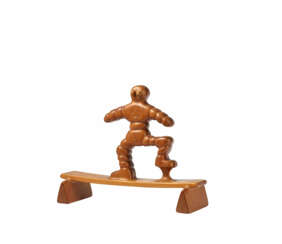Horace Clifford Westermann (1922 - 1981) — Auction price

Horace Clifford (Cliff) Westermann was an American sculptor and printmaker. His sculptures frequently incorporated traditional carpentry and marquetry techniques. From the late 1950s until his death in 1981, Westermann worked with a number of materials and formal devices to address a range of personal, literary, artistic, and pop-cultural references. The artist's sculptural oeuvre is distinguished by its intricate craftsmanship, in which wood, metal, glass, and other materials are laboriously hand-tooled, and by its ability to convey an offbeat, often humorous, individualistic sensibility.
Westermann's sculptures reveal not only the influence of craft traditions, but also of varied art historical precedents. The artist's ability to convey subtle and uncanny effects through the presentation of seemingly simple objects has often led critics to compare his work to that of Surrealist-inspired artists such as Joseph Cornell. However, Westermann's work encompasses elements from a broad and diverse range of artistic practices, including Assemblage, Dada, and Folk Art. His sculptures, moreover, point to minimal and post-minimal art of the late 1960s and beyond, in terms of their rigorous craftsmanship, formal sophistication, unconventional use of materials, and sense of humor.


Horace Clifford (Cliff) Westermann was an American sculptor and printmaker. His sculptures frequently incorporated traditional carpentry and marquetry techniques. From the late 1950s until his death in 1981, Westermann worked with a number of materials and formal devices to address a range of personal, literary, artistic, and pop-cultural references. The artist's sculptural oeuvre is distinguished by its intricate craftsmanship, in which wood, metal, glass, and other materials are laboriously hand-tooled, and by its ability to convey an offbeat, often humorous, individualistic sensibility.
Westermann's sculptures reveal not only the influence of craft traditions, but also of varied art historical precedents. The artist's ability to convey subtle and uncanny effects through the presentation of seemingly simple objects has often led critics to compare his work to that of Surrealist-inspired artists such as Joseph Cornell. However, Westermann's work encompasses elements from a broad and diverse range of artistic practices, including Assemblage, Dada, and Folk Art. His sculptures, moreover, point to minimal and post-minimal art of the late 1960s and beyond, in terms of their rigorous craftsmanship, formal sophistication, unconventional use of materials, and sense of humor.


Horace Clifford (Cliff) Westermann was an American sculptor and printmaker. His sculptures frequently incorporated traditional carpentry and marquetry techniques. From the late 1950s until his death in 1981, Westermann worked with a number of materials and formal devices to address a range of personal, literary, artistic, and pop-cultural references. The artist's sculptural oeuvre is distinguished by its intricate craftsmanship, in which wood, metal, glass, and other materials are laboriously hand-tooled, and by its ability to convey an offbeat, often humorous, individualistic sensibility.
Westermann's sculptures reveal not only the influence of craft traditions, but also of varied art historical precedents. The artist's ability to convey subtle and uncanny effects through the presentation of seemingly simple objects has often led critics to compare his work to that of Surrealist-inspired artists such as Joseph Cornell. However, Westermann's work encompasses elements from a broad and diverse range of artistic practices, including Assemblage, Dada, and Folk Art. His sculptures, moreover, point to minimal and post-minimal art of the late 1960s and beyond, in terms of their rigorous craftsmanship, formal sophistication, unconventional use of materials, and sense of humor.






